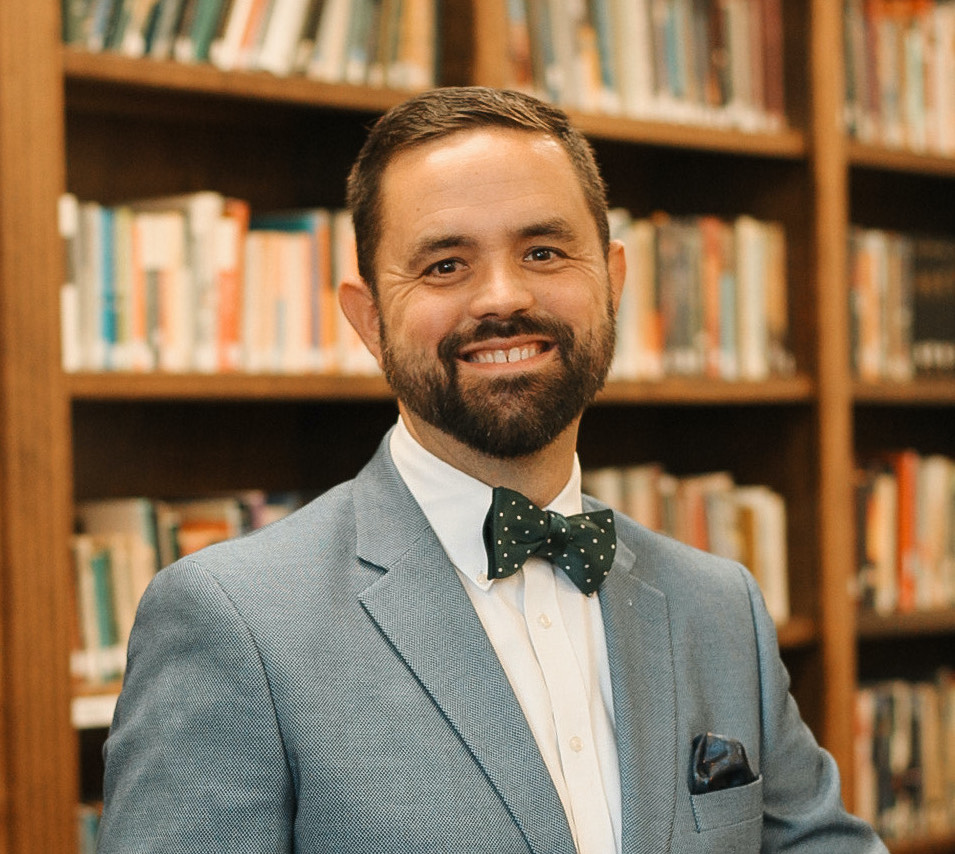 Generational faithfulness is a recurring discussion in the Trinitas community. Even while being considered for admission, prospective parents are asked to describe the fundamental beliefs and practices that form the primary foundation for their child’s faith formation. Continuity between how parents order their own lives and the expectations they hold for their children is essential. One generation’s faithfulness before God forms an avenue of blessing for succeeding generations.
Generational faithfulness is a recurring discussion in the Trinitas community. Even while being considered for admission, prospective parents are asked to describe the fundamental beliefs and practices that form the primary foundation for their child’s faith formation. Continuity between how parents order their own lives and the expectations they hold for their children is essential. One generation’s faithfulness before God forms an avenue of blessing for succeeding generations.
Years ago I was gifted a two-volume biography of Hudson Taylor, the great British missionary to China. Though exciting narratives and profound spiritual application abound in this book, I was most impressed by the emphasis the author placed on the spiritual heritage from which Hudson Taylor descended. The great missionary accomplishments such as the founding of the China Inland Mission are buried late in the second volume while nearly the entire first volume not only details the generational faithfulness of Hudson Taylor’s predecessors but also attributes his later success to their influence.
Family lineages rarely make inspiring reading. Take, for example, the first chapter of the gospel of Matthew. Most often, our attention is captured by verses 18-25, but verses 1-17 also hold benefit for careful readers. Consider these highlights:
-
Among the ancestors of Christ who had brethren, generally, he descended from a younger brother (Abraham, Jacob, Judah, David, Nathan, Rhesa) to show that the pre-eminence of Christ came not, as that of earthly princes, from the primogeniture of his ancestors, but from the will of God, who, according to the method of his providence, exalted them of low degree, and puts more abundant honor upon that part which lacked.
-
Brothers are mentioned in verses 2 and 3.
-
There are four women, two of them were originally strangers to the commonwealth of Israel: Rahab a Canaanitess harlot and Ruth the Moabitess. The other two were adulteresses, Tamar and Bathsheba.
-
Though many kings are named, none is expressly called a king but David. Perhaps because with him, the covenant of royalty was made, and to him, the promise of the kingdom of the Messiah said to inherit the throne of his father David was given.
-
The general summary of the genealogy is summed up in three sections of fourteen, signalized by remarkable periods. In the first fourteen, the family of David rising, and looking forth as the morning; in the second, it flourishes in its meridian luster; in the third, declining and diminishment, dwindling into the family of a poor carpenter before the Christ shined forth out of it - the glory of his people Israel.
All very interesting perhaps, but two primary takeaways from these verses stand out to me, first, the faithfulness of the people in this genealogy (Abraham, Isaac, Jacob, Boaz the kinsman redeemer, Rahab, Hezekiah, Asa, Zadok, Joseph & Mary), and more importantly, the covenantal faithfulness of their God.
Along with these examples of faithfulness are many examples of unfaithfulness; still, the central theme of the passage, the covenantal faithfulness of God, stands witness to the fact that although God chooses to mediate blessing to children of those parents who “train their children in the way they should go”, it is ultimately He that keeps them from departing from that way when they are old. (Prov. 22:6)



